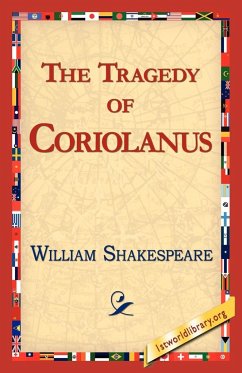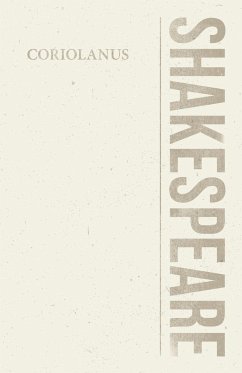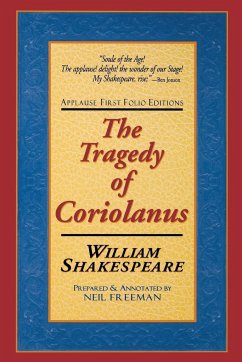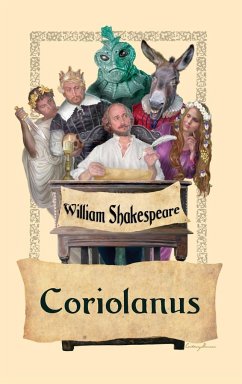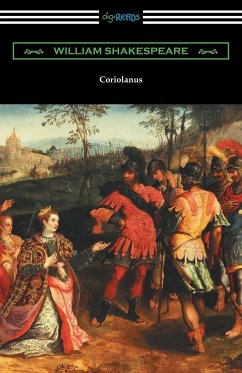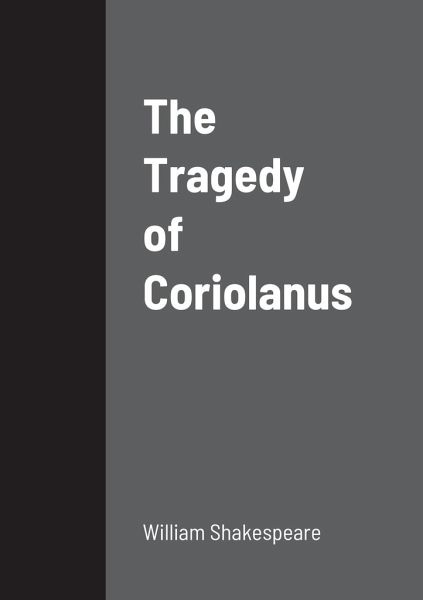
The Tragedy of Coriolanus
Versandkostenfrei!
Versandfertig in 1-2 Wochen
31,99 €
inkl. MwSt.

PAYBACK Punkte
16 °P sammeln!
Coriolanus is a tragedy by William Shakespeare, believed to have been written between 1605 and 1608. The play is based on the life of the legendary Roman leader Caius Marcius Coriolanus. The tragedy is one of the last two tragedies written by Shakespeare, along with Antony and Cleopatra.Coriolanus is the name given to a Roman general after his military success against various uprisings challenging the government of Rome. Following this success, Coriolanus becomes active in politics and seeks political leadership. His temperament is unsuited for popular leadership and he is quickly deposed, whe...
Coriolanus is a tragedy by William Shakespeare, believed to have been written between 1605 and 1608. The play is based on the life of the legendary Roman leader Caius Marcius Coriolanus. The tragedy is one of the last two tragedies written by Shakespeare, along with Antony and Cleopatra.Coriolanus is the name given to a Roman general after his military success against various uprisings challenging the government of Rome. Following this success, Coriolanus becomes active in politics and seeks political leadership. His temperament is unsuited for popular leadership and he is quickly deposed, whereupon he aligns himself to set matters straight according to his own will. The alliances he forges along the way result in his ultimate downfall.The play opens in Rome shortly after the expulsion of the Tarquin kings. There are riots in progress, after stores of grain were withheld from ordinary citizens. The rioters are particularly angry at Caius Marcius, a brilliant Roman general whom they blame for the loss of their grain. The rioters encounter a patrician named Menenius Agrippa, as well as Caius Marcius himself. Menenius tries to calm the rioters, while Marcius is openly contemptuous, and says that the plebeians were not worthy of the grain because of their lack of military service. Two of the tribunes of Rome, Brutus and Sicinius, privately denounce Marcius. He leaves Rome after news arrives that a Volscian army is in the field.The commander of the Volscian army, Tullus Aufidius, has fought Marcius on several occasions and considers him a blood enemy. The Roman army is commanded by Cominius, with Marcius as his deputy. While Cominius takes his soldiers to meet Aufidius' army, Marcius leads a rally against the Volscian city of Corioli. The siege of Corioli is initially unsuccessful, but Marcius is able to force open the gates of the city, and the Romans conquer it. Even though he is exhausted from the fighting, Marcius marches quickly to join Cominius and fight the other Volscian force. Marcius and Aufidius meet in single combat, which ends only when Aufidius' own soldiers drag him away from the battle.In recognition of his great courage, Cominius gives Caius Marcius the agnomen, or "official nickname", of Coriolanus. When they return to Rome, Coriolanus's mother Volumnia encourages her son to run for consul. Coriolanus is hesitant to do this, but he bows to his mother's wishes.





